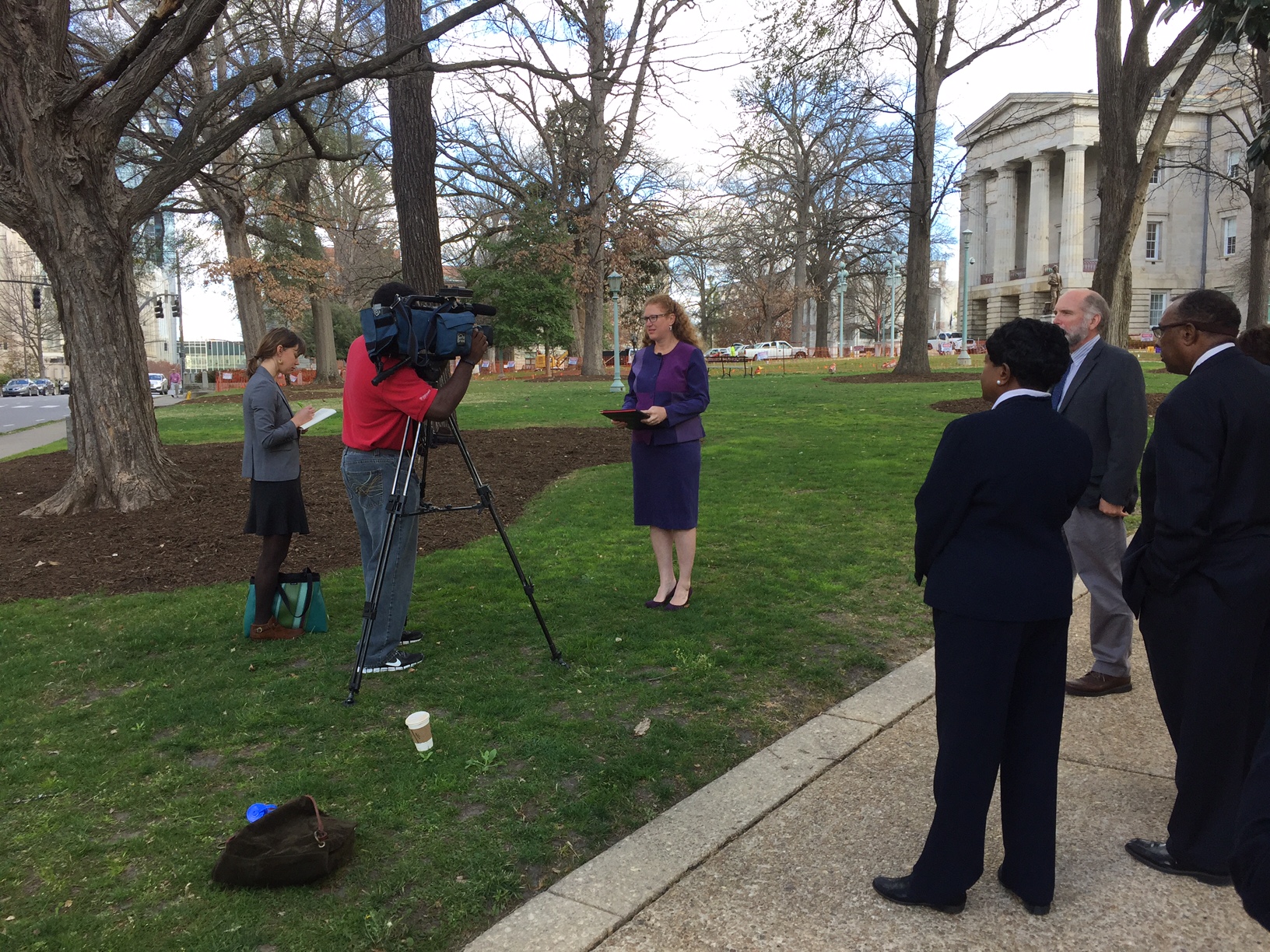Remarks delivered by NCIPL Director Susannah Tuttle at a press conference on February 23.
People of faith have always embraced our cathedrals, churches, mosques, synagogues, and temples as sacred. In the best of scenarios, houses of worship hold the community together and serve as a central focus for community life. Symbolically and in reality, people of faith strive for our sacred spaces to be the center of good works and community service.
In today’s frenetic, business-oriented, electronic world, our houses of worship continue to be places of retreat, where the faithful come for worship, study, fellowship, and community engagement.
As people of faith have become more deeply engaged in environmental stewardship, we now recognize that rapidly accelerating climate change is one of the greatest challenges that civilization has ever faced. Putting together faith and the scientific reality of climate change, congregations are taking action. Some are doing energy audits and making steps to reduce energy use, some are designing new buildings and additions that are highly energy efficient, and some are making the transition to clean renewable energy generated from the sun.
Even as the price of solar drops, these upfront costs often pose a barrier to the many benefits of solar for nonprofits, like churches and other congregations, and for low- or moderate-income families. A financing arrangement called a power purchase agreement provides an elegant solution. In these arrangements, the solar-power system is installed for little or no money down. The customer pays for the system over time based on its output. This kind of financing arrangement has the added benefit of allowing churches, other houses of worship, and nonprofits to benefit from tax credits for solar that are otherwise unavailable for tax-exempt organizations.
Every faith tradition has a mandate within sacred texts to care for creation. Clean, renewable, solar energy is a critical component of creation care in the 21st Century. Mitigating further climate change through development and dissemination of renewable energy is part of our faithful response to preserve and protect the beauty and goodness of the Sacred Earth upon which we are all interdependent.

